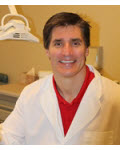Dentistry and Medicine - A Partnership for Your Oral Health

A world of opportunities for dental health awaits us in the new dentistry. Using the old dentistry, dental care professionals did their best to provide a high quality of service given the state of knowledge and technology at that time.
Through advancements in treatment, research, and the desire of the dental care profession to do more and do it better, the new dentistry has emerged giving you a better smile. It is based on a foundation with specific characteristics that are of great benefit to us as consumers.
- Efficiency: Your time and your resources are valuable to you, and your dentist recognizes this. New dentistry treatment techniques and methods have considerably reduced the amount of time that the dental care now takes. The return on your investment in dental health is excellent.
- Comfort: Not only are the dental chairs and the dentistry office environment more comfortable and pleasant, improvements in the use of local anesthetics and new equipment provide more comfort than ever before.
- Collaboration: The dental relationship is now based on the value that you can derive from your dentistry team and what you want for your dental future rather than just on the techniques and procedures your dentist can do. Through dental continuing education, your dentist has the skills and knowledge to help you make decisions for your dental health in a positive and informed way.
- Predictability: New materials and advances in treatment provide you with opportunities to maintain your dental health throughout your life. With the innovative cosmetic and specialized dentistry approaches to reclaiming teeth that formally would be lost, your dentistry professional can help create and maintain teeth and gums. Predictable treatment, effective prevention methods, and the longevity of treatment are now part of any treatment plan.
- Thoroughness: Advances in assessment and diagnosis now enable dentists to make thorough evaluations of your overall dental and oral health. The outcome is a plan for your health that will give you peace of mind, knowing you can have a well-informed dentistry plan in place.
- Prevention: This characteristic of the new dentistry has received much publicity in recent years. It has been proven over and over again that there are several measures that you can take as a consumer of dental care to create and maintain your dental health in collaboration with your dental team. It bears repeating again -- flossing and brushing combined with regular dental hygiene checks are your greatest allies in maintaining your teeth and a bright smile.
- Precision: The new dentistry utilizes instruments and technologies that are far advanced from what was available even 15 years ago. Both general dentists and specialists have access to technologies that provide precision in diagnosis and treatment. The value for you is higher quality care.
The dental profession has established a strong foundation for a pleasant smile and a healthy dental future for all of us. Dentistry improvements are continuously being made to this foundation. You can choose to avail yourself of these improvements by asking your dentist, "What can help me to maintain my dental health?" They have the knowledge and the desire to help you.
By Brian DesRoches, PhD

+Jim Du Molin is a leading Internet search expert helping individuals and families connect with the right dentist in their area. Visit his author page.
Anxiety-Free Dentistry Can Help Control Dental Fears

Many patients face their dental appointment with a degree of anxiety. Research has shown that the largest cause of this fear is the fear of pain ... the fear that at some time during their dental care treatment they are going to be hurt.
Sedation dentists have information available about a variety of drugs known as local anesthetics, which are the safest and most effective drugs in all of medicine. Local anesthetics are a resource used in anxiety-free dentistry for the prevention and management of dental anxiety resulting from dental and surgical procedures, not to put the patient to sleep.
Local anesthetics, commonly called Novocain by patients (Novocain is no longer used, having been replaced by newer, safer, and more effective drugs), are drugs which, when injected near a nerve, prevent stimulation from reaching the brain where it would be interpreted by a person as pain. Sedation dentists interested in practicing anxiety-free dentistry know these also work very well as temporary relief of a tooth ache.
The injectable local anesthetics, used today by sedation dentists provide complete relief about 100% of the time. The duration of the numbness varies from drug to drug -- some providing short durations, while others remain effective for up to 12 hours. A doctor will select a drug for a patient that is appropriate for the type of dental care procedure they are having done.
In order to be effective during dental treatment, local anesthetics usually need to be injected. For many people, this is the most uncomfortable part of the entire dental appointment.
Local anesthetics can be administered quite comfortably. Sedation dentists and dental hygienists take pride in their ability to administer local anesthesia easily and comfortably.
The following are some of the procedures sedation dentists practicing anxiety-free dentistry might use to make this procedure more comfortable:
- Place the patient in a reclined position during the injection.
- Place a topical anesthetic (a gel or spray) on the patient's gums where the injection is to be given. This should remain in contact with tissues for at least one minute.
- Use of a distraction technique, such as pulling or shaking the lip as the needle is slowly inserted.
- Injecting the local anesthetic drug slowly. This is critical to a comfortable injection.
- Permitting the local anesthetic drug time to work. Most local anesthetics will become completely effective within approximately five minutes after their injection.
If an individual is fearful of receiving a local anesthetic injection, they should tell the assistant or the sedation dentist BEFORE the procedure starts. The use of conscious sedation such as laughing gas, as part of anxiety-free dentistry, can work wonders to make this procedure more comfortable for the patient.
By Stanley F. Malamed, DDS

+Jim Du Molin is a leading Internet search expert helping individuals and families connect with the right dentist in their area. Visit his author page.









